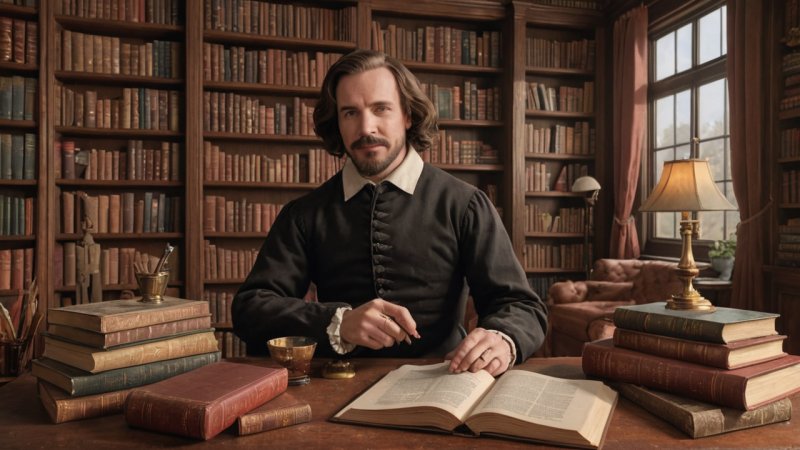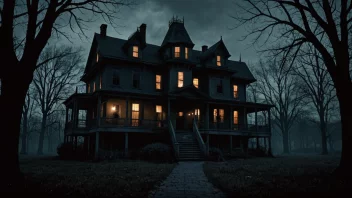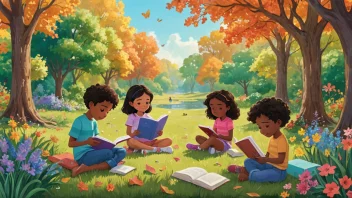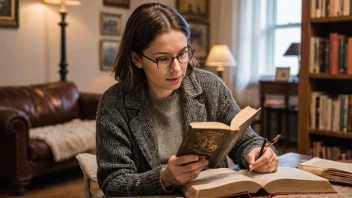In a fictional interview with acclaimed literary expert Dr. Eloise Whittaker, we delve into the world of classic literature and explore the authors who have left an indelible mark on the literary landscape. Dr. Whittaker, a professor of literature at the Imaginary University of Imagination, has dedicated her career to studying the impact of classic writers and their contributions to the literary canon. Through this engaging dialogue, we aim to uncover the nuances of their influence and the enduring relevance of their works.
Q: Dr. Whittaker, when we talk about classic authors, who do you believe stands out as the most influential and why?
A: It's a difficult task to pinpoint just one author, but if I had to choose, I would highlight William Shakespeare. His mastery of language, character development, and exploration of the human condition have permeated literature in ways that are simply profound. Shakespeare's works have been translated into every major language and continue to be performed and adapted in various forms, proving his timelessness and universal appeal.
Q: Are there other authors you would consider equally influential?
A: Absolutely. One cannot overlook the contributions of Jane Austen. Her keen observations on society, gender, and relationships in novels like *Pride and Prejudice* resonate with readers even today. Additionally, Leo Tolstoy, with his epic narratives and philosophical insights in *War and Peace* and *Anna Karenina*, has shaped not only the novel as a form but also the way we view morality and human experience.
Q: What about American literature? Who do you think has had a major impact?
A: In American literature, Mark Twain is a pivotal figure. His novel *The Adventures of Huckleberry Finn* is often considered one of the greatest American novels, addressing themes of race and identity in a way that was groundbreaking for its time. His use of vernacular speech and humor also opened doors for future authors to explore authentic voices in literature.
Q: Moving to the realm of non-fiction, which classic authors do you think have influenced thought in that genre?
A: Non-fiction is rich with influential voices, but I'd highlight authors like George Orwell, whose essays and dystopian novels such as *1984* and *Animal Farm* have profoundly shaped political discourse and social criticism. His ability to distill complex ideas into accessible narratives makes him an enduring figure in both literature and critical thought.
Q: How do you think these classic authors continue to influence contemporary writers?
A: Classic authors lay the groundwork for themes and styles that modern writers continue to explore. For instance, many contemporary novels grapple with identity and societal norms in ways reminiscent of Austen's sharp critiques. Moreover, the narrative structures and character archetypes established by Shakespeare and Tolstoy can be seen reflected in today's storytelling, whether in novels, films, or television series.
Q: In your opinion, why is it essential for readers today to engage with classic literature?
A: Engaging with classic literature enriches our understanding of human nature and societal dynamics. These works often address universal themes—love, loss, conflict, and redemption—that remain relevant across generations. By connecting with these texts, readers can gain insight into the past while reflecting on their own experiences and values. It's a bridge that connects us to different cultures and times, fostering empathy and critical thinking.
Q: Finally, do you have any recommendations for readers looking to delve into classic literature?
A: I recommend starting with a mix of genres. For those new to classics, Jane Austen's *Emma* offers a delightful exploration of social structures, while Fyodor Dostoevsky's *Crime and Punishment* provides a gripping psychological journey. Additionally, exploring poetry by Emily Dickinson or Robert Frost can offer a different perspective on classic literature. Each of these works provides a unique window into the thoughts and emotions of their time, while still resonating with contemporary readers.






